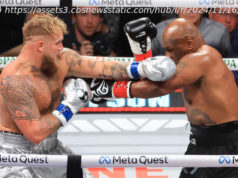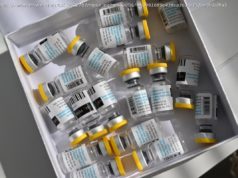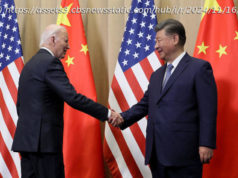NEW YORK — One year ago this week, the Manhattan district attorney’s investigation into Donald Trump appeared to be dead in the water. The two leaders of the investigation had recently resigned after the new district attorney, Alvin Bragg, decided not to charge Trump at that point. Amid a fierce backlash to his decision — and a brutal start to his tenure — Bragg insisted that the investigation was not over. But a disbelieving media questioned why, if the effort was still moving forward, there we
One year ago this week, the Manhattan district attorney’s investigation into Donald Trump appeared to be dead in the water.
The two leaders of the investigation had recently resigned after the new district attorney, Alvin Bragg, decided not to charge Trump at that point. Amid a fierce backlash to his decision — and a brutal start to his tenure — Bragg insisted that the investigation was not over. But a disbelieving media questioned why, if the effort was still moving forward, there were few signs of it.
“Unless y’all are great poker players,” Bragg told The New York Times in an early April 2022 interview, “you don’t know what we’re doing.”
What they were doing, new interviews show, was going back to square one, poring over the reams of evidence that had already been collected by his predecessor.
For a time, their efforts were haphazard as they examined a wide range of Trump’s business practices, including whether he had lied about his net worth, which was the focus of the investigation when Bragg had declined to seek an indictment. But by last July, Bragg had decided to assign several additional prosecutors to pursue one particular strand that struck him as promising: a hush-money payment made on Trump’s behalf to a porn star during the final days of the 2016 presidential campaign.
On Thursday, Trump was indicted on that strand. He is expected to surrender to authorities in Manhattan on Tuesday and face arraignment on more than two dozen charges, which will be unveiled at that time.
This account of Bragg’s decision to revive the investigation and point it toward the hush-money arrangement, based on interviews with about a dozen people familiar with the matter, reveals the circuitous, sometimes uncertain road that led to the first criminal charges against a former U.S. president.
Along the way, a key internal skeptic of the investigation became one of its champions; Bragg shook up the Trump team and hired an experienced lawyer away from the Justice Department to help lead it; and he ultimately found new promise in a key witness he had once disregarded as unreliable. The district attorney was also emboldened late last year when his prosecutors won a conviction of Trump’s company in an unrelated tax case.
Last April, Bragg, a Democrat, had a chance to move on from the ex-president and turn his tenure toward his initial motivation in running for office: reshaping the criminal justice system in Manhattan. Now, his willingness to wager his political future on the case against Trump will be tested like never before — his success, or failure, is inextricably tied to the former president.
Winning an indictment is one thing. Winning a conviction of Trump will be far more difficult.
The decision to revisit the case despite his earlier reservations has opened Bragg to criticism from the former president’s supporters that he is blindly pursuing Trump.
The case has also exposed the district attorney to a wave of hostile and racist rhetoric from the former president and his supporters. Bragg, a career prosecutor, has received vivid death threats, including one that was mailed to the office last week.
In a statement Thursday, after the indictment was reported, Trump called the case a “political persecution and election interference at the highest level in history,” adding that Bragg was “a disgrace” and calling himself “a completely innocent person.”
Going Through the Binders
Shortly after Bragg took office in January 2022, he received a warning.
At the time, he was grappling with the potential case centered on Trump’s net worth, which two senior prosecutors, Mark Pomerantz and Carey Dunne, were presenting to a grand jury.
The warning came in the form of memos about that investigation, one of which was delivered to Bragg’s aides by a career prosecutor, Chris Conroy.





